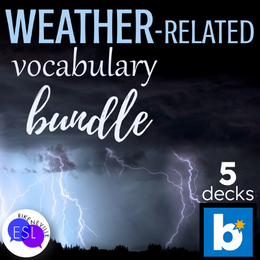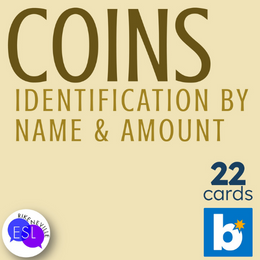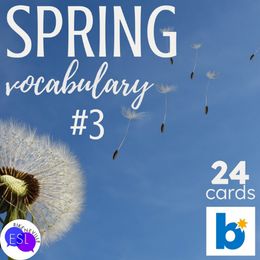
Adults love vocabulary games as much as children do, but unlike kids, they tend to want fun and educational games. Adult students have limited time, and they’re usually paying for their English classes. They prefer games that give them English practice, but they’re not likely to object to prizes! ^_^ Still, you might run into some hold-outs. How can you convince them that vocabulary games are NOT a waste of their time?
Create a buy-in that has even the reluctant ones clamoring to play.
I love to use games to informally assess my students while giving them a break from more serious studying. Announcing that we’re about to play a game usually causes students’ faces to brighten with smiles, but what do we do about the scowlers? There are always those students who view games as something for the weak-minded. They tend to pride themselves on how hard they study and often feel like playing games is a waste of their time and money. Now what?
This is how you do it.
I usually win them over by telling them that this is a competitive type of test with game points instead of test points. If that doesn’t work or I know I’m dealing with a particularly anti-game person, I discuss it with them (either in person or via email/text). I explain what concept will be covered, the vocabulary theme (if applicable), and how I will be using this informal assessment to drive future lessons. The more they know about why they will play the game and how it will help THEM, the more willing they will be to participate.
Game #1: the very versatile SWOOSH! vocabulary game

Swoosh! is one of the most versatile vocabulary games I know. Easy to make, it works as a review or a sneaky assessment, and it virtually guarantees fun! All you need is a lot of cards (or even slips of paper).
On the cards, you can write:
- vocabulary terms for them to give the definitions or use the terms in sentences.
- definitions for them to respond with the terms.
You can use images for them to
- identify the term
- define the word
- use the word in a sentence
- give an antonym or synonym
Be sure to also create cards that say SWOOSH! The more you have, the harder it is for students to accumulate cards, but it’s much more painful when someone draws one if you only have a few.
Here’s how to play SWOOSH! vocabulary games.
- Students take turns drawing a card and giving the answer. If they can do so correctly, they keep the card. If not, they return the card, and the game continues.
- When someone draws a SWOOSH! card, that student must forfeit all accumulated cards. Play continues with the next student, but that SWOOSH! card remains out of play until the end of the game. The winner is whoever has the most cards when time is called.
Still not really sure what a SWOOSH game is? You can grab a super simple body part SWOOSH vocabulary game for just $1 here.
Warning! If you share a wall with another classroom, it’s always a good idea to check with those teachers that they didn’t schedule a test on the day you play this vocabulary game. Adults can scream and yell with the excitement of the game, just like kids do!
Game #2: the always-popular photo scavenger hunt
I love this activity/game because it gives students a chance to get outside and wander around the campus (if you teach on a university campus), through the school, or just in the neighborhood. If your class is online, you can always limit the time to find photos on the internet. To keep everyone from just running a google search and grabbing the first image that pops up, tell them that they can only get a point for it if no one else has the same photo. You can also require that one of them must be in the photo.
Here’s how to have photo scavenger hunts as vocabulary games.

- Give students the list of vocabulary words and send them out to take photos that represent those words.
- With in-person classes, insist on groups of 2-3. This ensures they talk while deciding what best represents each picture and that no one without a phone is left out. (I also often bring my old phones in case someone needs one.)
- I give them a time limit. To eliminate any desire to straggle in, I deduct points per 30 seconds to a minute of being late.
- If it is a very small class, I might have them show me their pictures and explain which ones represent which words. If the class is large, I have the groups pair up and give each other points. With an online class, you could have them work together or alone to create a PowerPoint or Google Presentation using the images and the terms.
BOOM cards can also be vocabulary games!
If remote/distance learning is something you are currently dealing with, or you just like to incorporate technology, have flipped classes, or assign fun homework, you might like BOOM cards. These interactive, self-checking decks are just the ticket to help students learn/review vocabulary even when they can’t make it to class.
Take a peak at some of what I have in my BOOM store by clicking an image below. You can get a discount on a new membership if you use my affiliate link. (I might also get a little something at no cost to you.)
Not sure what BOOM cards are all about? Start here:







Leave a Reply